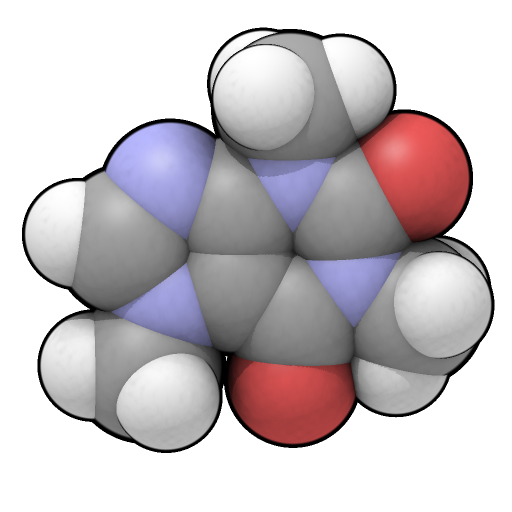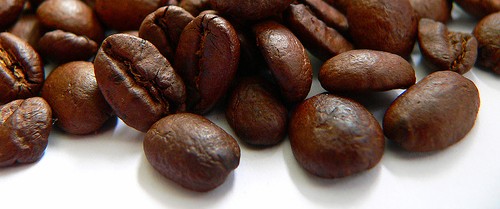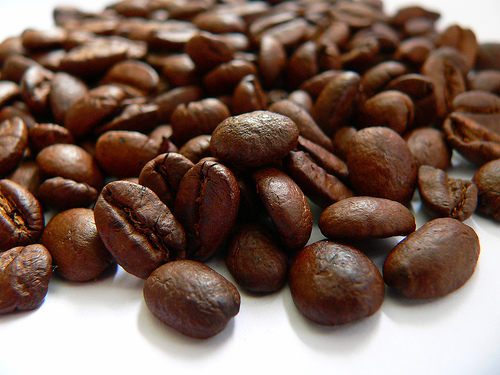Caffeine Effects on memory and learning
 Cas No. [58-08-2]
Anhydrous caffeine
An array of studies found that caffeine could have nootropic
effects, inducing certain changes in memory and learning.
Researchers have found that long-term consumption of low dose
caffeine slowed hippocampus-dependent learning and impaired
long-term memory in mice. Caffeine consumption for 4 weeks also
significantly reduced hippocampal neurogenesis compared to controls
during the experiment. The conclusion was that long-term consumption
of caffeine could inhibit hippocampus-dependent learning and memory
partially through inhibition of hippocampal neurogenesis.
In another study, caffeine was added to rat neurons in vitro. The
dendritic spines (a part of the brain cell used in forming
connections between neurons) taken from the hippocampus (a part of
the brain associated with memory) grew by 33% and new spines formed.
After an hour or two, however, these cells returned to their
original shape. hippocampus (a part of
the brain associated with memory) grew by 33% and new spines formed.
After an hour or two, however, these cells returned to their
original shape.
Another study showed that human subjects—after receiving 100
milligrams of caffeine—had increased activity in brain regions
located in the frontal lobe, where a part of the working memory
network is located, and the anterior cingulate cortex, a part of the
brain that controls attention. The caffeinated subjects also
performed better on the memory tasks.
However, a different study showed that caffeine could impair
short-term memory and increase the likelihood of the tip of the
tongue phenomenon. The study allowed the researchers to suggest that
caffeine could aid short-term memory when the information to be
recalled is related to the current train of thought, but also to
hypothesize that caffeine hinders short-term memory when the train
of thought is unrelated.In essence, caffeine consumption increases
mental performance related to focused thought while it may decrease
broad-range thinking abilities.

>>
New Product
Introduced :
Oseltamivir
Phosphate,
Phenyl Propanolamine,
Phenylephrine,
Etafedrine

|

 We all know that one of the most
powerful chemical compounds found in both coffee and tea is
caffeine. Has caffeine become an important part of your daily life?
Did you know We all know that one of the most
powerful chemical compounds found in both coffee and tea is
caffeine. Has caffeine become an important part of your daily life?
Did you know
Article : What Is Caffeine?
 Caffeine is a drug that is naturally
produced in the leaves and seeds of many plants. It's also produced
artificially and added to certain foods. Caffeine is defined as a
drug because it stimulates the central nervous system, causing
increased alertness. Caffeine gives most people a temporary energy
boost and elevates mood. Caffeine is a drug that is naturally
produced in the leaves and seeds of many plants. It's also produced
artificially and added to certain foods. Caffeine is defined as a
drug because it stimulates the central nervous system, causing
increased alertness. Caffeine gives most people a temporary energy
boost and elevates mood.
Caffeine is in tea, coffee, chocolate, many soft drinks, and pain
relievers and other over-the-counter medications. In its natural
form, caffeine tastes very bitter. But most caffeinated drinks have
gone through enough processing to camouflage the bitter taste.
Teens usually get most of their caffeine from soft drinks and energy
drinks. (In addition to caffeine, these also can have added sugar
and artificial flavors.) Caffeine is not stored in the body, but you
may feel its effects for up to 6 hours.
![Caffeine Cas No. [58-08-2]](caffeine/CAFFEINE%20LOGO%20SMALL.bmp)
|


